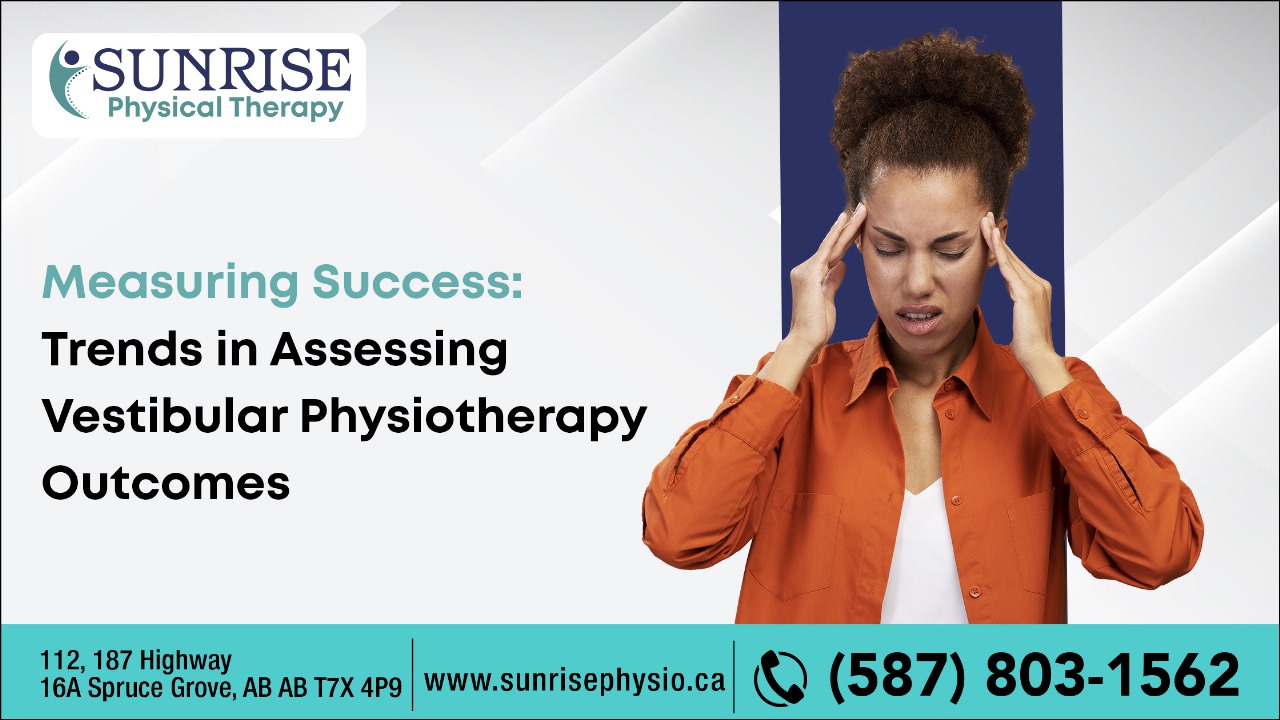
Vestibular physiotherapy is a specialized branch of rehabilitation that focuses on treating balance disorders, dizziness, and vertigo resulting from inner ear or neurological conditions. With the increasing demand for effective treatments, clinical trials in vestibular physiotherapy are becoming a key area of research. These trials aim to evaluate and refine treatment methods, ensuring that patients receive the most care. Vestibular physiotherapy Spruce Grove At Sunrise Physical Therapy, we stay up-to-date with the latest research to provide our patients with evidence-based treatments.
What are Clinical Trials in Vestibular Physiotherapy?
Clinical trials are research studies designed to evaluate the safety and effectiveness of new or existing treatments. In vestibular physiotherapy, clinical trials explore different therapeutic techniques, exercises, and interventions to determine which methods provide the results for patients with balance and dizziness issues. These trials often focus on conditions such as benign paroxysmal positional vertigo (BPPV), vestibular neuritis, Meniere’s disease, and other vestibular disorders.
The results of these studies are essential for advancing the field and ensuring that treatments offered to patients are scientifically proven to improve their symptoms. Clinical trials in vestibular physiotherapy not only help enhance patient care but also lead to the development of new techniques that could benefit future patients.
Key Areas of Research in Vestibular Physiotherapy
Vestibular Rehabilitation Exercises (VRT)
Vestibular rehabilitation therapy (VRT) is one of the most common treatments for balance disorders and dizziness. Clinical trials are continuously exploring new and improved exercises for VRT. These exercises are designed to help the brain adapt to changes in balance and motion caused by vestibular dysfunction. For example, trials may evaluate the effectiveness of specific eye and head movements, balance training, and gait retraining exercises. The aim is to identify which exercise programs are most beneficial for improving balance and reducing dizziness in various patient populations.
Cognitive and Behavioral Approaches
In addition to physical exercises, clinical trials are investigating the role of cognitive and behavioral interventions in managing vestibular disorders. Researchers are studying how psychological strategies, such as cognitive-behavioral therapy (CBT), can be combined with vestibular physiotherapy to improve outcomes. These combined approaches aim to address both the physical and emotional challenges patients face during their recovery.
Innovative Technologies and Tools
Technology plays an increasingly important role in vestibular physiotherapy. Clinical trials are exploring the use of virtual reality (VR), biofeedback systems, and wearable devices in vestibular rehabilitation. These technologies can offer more immersive and targeted rehabilitation experiences for patients. For instance, VR can simulate environments where patients practice balance and motion exercises in a controlled setting, while wearable devices can monitor and track progress over time. Research on these technologies helps refine their application and effectiveness in treating vestibular disorders.
Effectiveness of Combined Therapies
Clinical trials are also examining the impact of combining vestibular physiotherapy with other treatments, such as medications, manual therapy, or surgical interventions. For some vestibular conditions, combining physiotherapy with medication or surgery may yield better results than using physiotherapy alone. Trials that study these combined therapies can provide valuable insights into the most comprehensive approaches to managing vestibular disorders.
The Importance of Clinical Trials in Advancing Vestibular Physiotherapy
Clinical trials in vestibular physiotherapy are vital for improving treatment outcomes and ensuring that patients receive the care possible. Additionally, the results from these trials contribute to a growing body of evidence that helps refine and standardize vestibular rehabilitation techniques.
At Sunrise Physical Therapy in Spruce Grove, we follow the latest research and clinical guidelines to provide the most effective vestibular physiotherapy treatments to our patients. While not every patient will be eligible for a clinical trial, we encourage individuals experiencing balance issues or dizziness to consult with our physiotherapists. We can assess your condition, discuss treatment options, and recommend the course of action to help you regain stability and improve your quality of life.
Conclusion
Clinical trials play a crucial role in advancing vestibular physiotherapy and enhancing the treatment of balance and dizziness disorders. As research continues, new methods, technologies, and approaches emerge, offering patients better outcomes and a higher quality of life. At Sunrise Physical Therapy in Spruce Grove, we are committed to providing evidence-based care that incorporates the latest advancements in vestibular rehabilitation. If you are struggling with balance issues or dizziness, contact us today to learn more about how we can help through individualized physiotherapy programs grounded in the latest research.
#vestibularphysiotherapysprucegrove #balancerestored #vestibularphysiotherapy #vestibularphysiotherapynearme #vestibularphysiotherapy #physiotherapynearme #physiotherapysprucegrove #physicaltherapynearme #physicaltherapy #sunrisephysicaltherapy